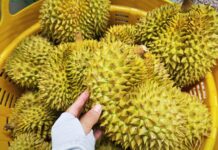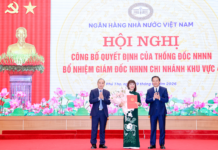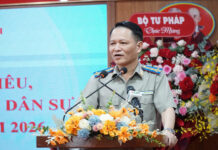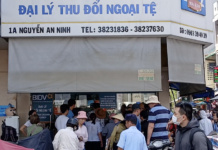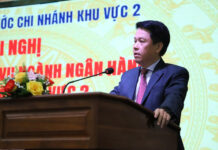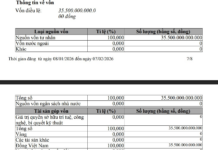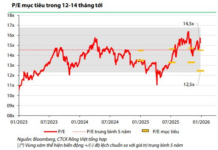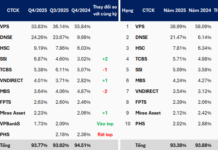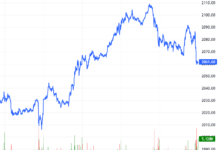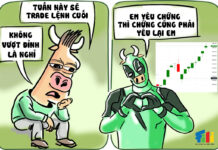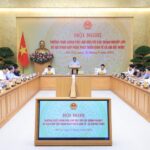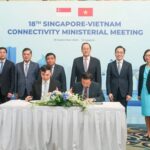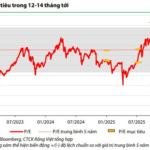The “Gateway to ASEAN” economic conference hosted by UOB Bank in early September 2024 featured a panel discussion titled “Growing in ASEAN through Vietnam.” In addition to successful business stories in Vietnam, leaders from businesses and investment funds such as Warburg Pincus, BW Industrial, and Viessmann Southeast Asia and Oceania shared their experiences in conquering the Vietnamese market, expanding exports, and more.
The discussion was moderated by Jimmy Koh, Director of Partnerships and Strategic Marketing at UOB Bank’s Foreign Investment Advisory Division in Singapore.
FRIENDLY GOVERNMENT AND CLEAR LEGAL FRAMEWORK
Warburg Pincus, one of the world’s oldest and most prominent private investment funds with over USD 113 billion in assets under management and a presence in more than 40 countries, has chosen Vietnam as one of its five global investment destinations and the third-largest investment location in Asia.
Vietnam is recognized by multinational enterprises as a country with a business-friendly government and a clear legal framework.
Li Fan, Executive Director of Warburg Pincus, pointed out three outstanding aspects that attract businesses and investors to Vietnam as a gateway to the Southeast Asian region (a top-down perspective):
First, political stability and a business-friendly government. “Vietnam is doing very well. If we look at emerging markets in Asia, Vietnam is the only country pursuing the East Asia Growth model alongside South Korea, Japan, China, and Singapore. And the Vietnamese government has consistently received high credit ratings from multinational enterprises investing in Vietnam, with progressive results year after year,” affirmed Li Fan.
The representative of Warburg Pincus illustrated that during the pandemic, the government took practical actions such as signing free trade agreements (FTAs) and actively encouraging investment in strategic partner countries. Vietnamese businesses have a foundation of advantages and a ready-made network with other countries, free trade areas, bilateral and multilateral agreements, etc. It is challenging for any other country to match Vietnam’s achievement of successfully completing FTAs with the US, Europe, and Japan within just 3-4 years.
Secondly, a clear and transparent legal framework. While there are still some overlapping regulations, there have also been many encouraging initiatives, and the government has made efforts to create a more transparent, equitable, and business-friendly legal environment.
It is evident in the preferential policies for FDI attraction and the low-cost labor force (about half the cost compared to China). Additionally, many investors have not carefully considered the “China +1” factor when choosing a market location.
Vietnam shares a direct border with China, making it more convenient for supply chain diversification and production relocation from China. Meanwhile, the Vietnamese government has improved and invested more in infrastructure (about 6-7% of GDP), similar to China’s previous strategy of tripling infrastructure investment.
Thirdly, a local partner ecosystem and network. Warburg Pincus has a large and diverse investment portfolio and collaborates with numerous local partners. For instance, they partner with VinaCapital, one of Vietnam’s largest investment funds, in industrial real estate.
As a leading developer of logistics and industrial real estate for lease in Vietnam, BW Industrial provides flexible production spaces, warehouses, and optimized solutions for businesses. Gene King, Investment Director of BW Industrial, shared that after the Covid-19 pandemic, there is a need to decentralize and diversify supply chains.
“Most businesses understand this. Enterprises from Europe and the US require their suppliers and manufacturers to diversify… and Vietnam is considered to have many favorable factors for selection. Nowadays, small and medium-sized enterprises (SMEs) are more flexible in terms of lease terms and capital. Therefore, they can outsource and focus on their business plans to invest more efficiently, better control costs, and aim for sustainability. This trend should be captured when investing in Vietnam,” shared Gene King.
During the discussion, most businesses agreed that the investment environment in Vietnam offers many advantages and serves as a gateway for businesses to penetrate the ASEAN market, thanks to its political stability, business-friendly government, clear and transparent legal framework, and local partner network.
GLOBAL THINKING, DEEP LOCAL INSIGHTS
Sharing the reason for investing in Vietnam, Alexandar Ziehe, General Director of Viessmann Southeast Asia and Oceania, said that Viessmann needed to diversify its supply chain. When choosing a location in ASEAN, Vietnam stood out with many solid advantages to serve markets other than Germany, such as Southeast Asian countries. In the future, Viessmann may upgrade its products to reach further into European and Australian markets… Vietnam could serve as an export base for other regions.
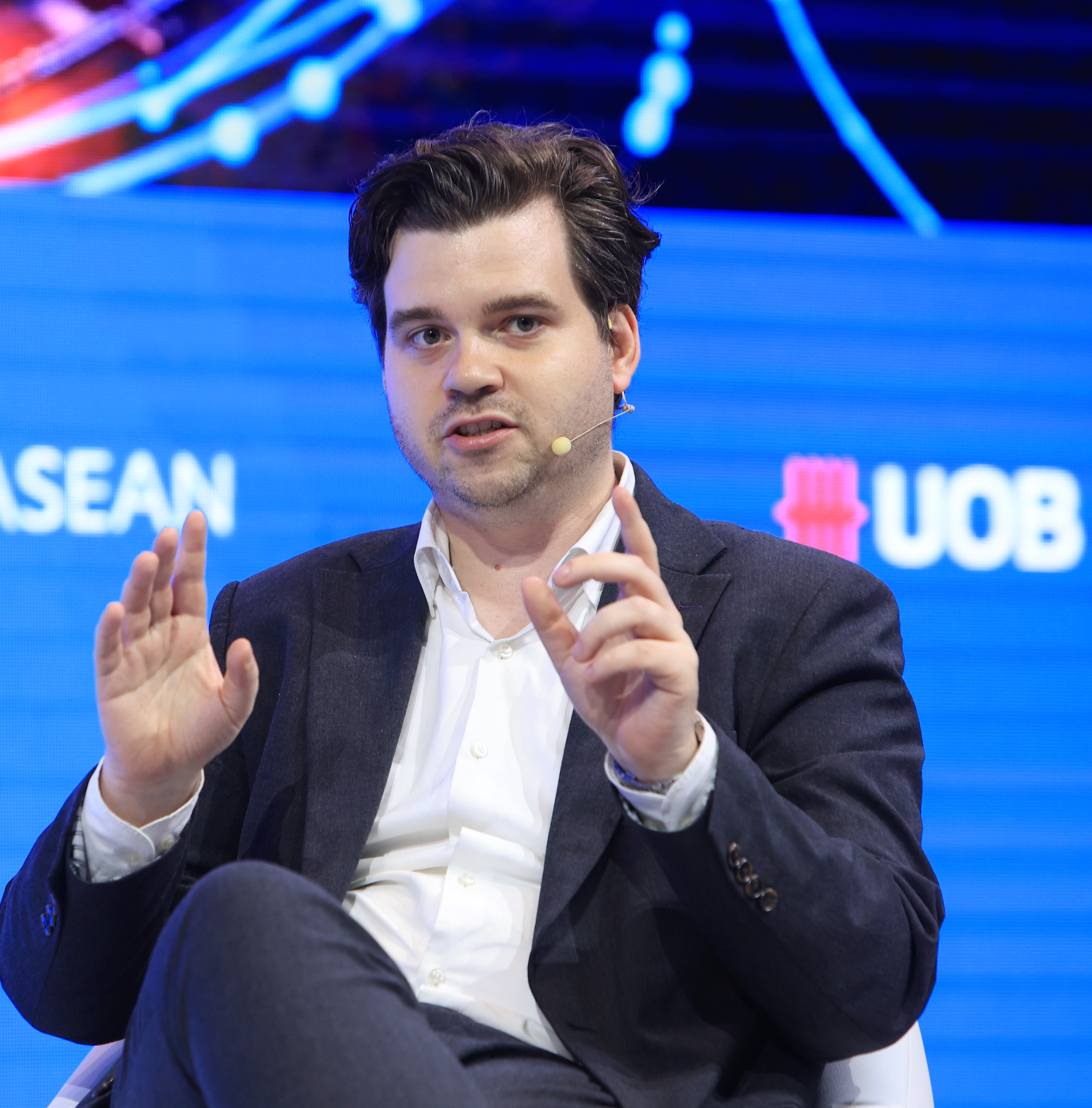
“Think globally but employ local talent. Therefore, local partners are crucial, and we must have a large and high-quality network and supply chain to produce good products and reach consumers effectively.”
“Viessmann’s decision to expand its production and build its first factory in Southeast Asia in the An Phuoc Industrial Park, Dong Nai Province, Vietnam, was entirely correct. This location boasts a robust local supply chain network. Asian consumers tend to change very quickly, so the supply chain must keep up with these rapid changes. Viessmann’s products also have a diverse supply, not dependent on a single source, and can be sourced from China or elsewhere. Another critical factor in our success is Vietnam’s large consumer base, which readily embraces foreign brands. This is inspiring, and Viessmann wants to seize this trend,” said Alexandar Ziehe.
To understand the market better, Viessmann had to go through several steps, including marketing, cultural understanding, and hiring locals. It was a challenging process. Currently, many Vietnamese professionals are involved in Viessmann’s research and development (R&D) department.
“Think globally but employ local talent. Therefore, local partners are crucial, and we must have a large and high-quality network and supply chain to produce good products and reach consumers effectively,” emphasized Alexandar Ziehe. Echoing the viewpoint of “global thinking and deep local insights,” Li Fan, Executive Director of Warburg Pincus, acknowledged that understanding the local culture, legal framework, and tax policies would help businesses penetrate deeper into the ASEAN market.
THE ROLE OF FINANCIAL INSTITUTIONS AS CONNECTORS
As a bank with the most extensive trade network in the ASEAN region, UOB has played a crucial connecting role for many years, helping businesses expand their operations into other countries in the region, including Vietnam.
In 2011, UOB established Foreign Direct Investment (FDI) Advisory Units to support businesses operating in the region. These units provide one-stop advisory services, including in-depth market information, advisory services, and tailored financial solutions such as trade finance, working capital loans, and strategic partnerships with local governments to help clients navigate legal requirements effectively.
Currently, UOB has ten FDI advisory centers across the region, including Vietnam. Over the past decade, more than 4,500 companies have utilized UOB’s FDI advisory services to expand overseas, particularly into ASEAN countries.
Specifically, in Vietnam, UOB has assisted approximately 300 companies from various countries in expanding their operations into the country over the last five years. These companies have committed to investing around SGD 7.3 billion (Singapore dollars) and creating more than 50,000 jobs in Vietnam.


